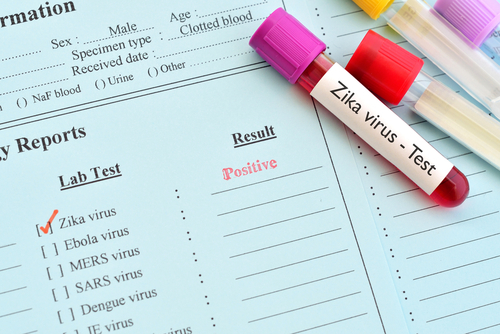Novel AI-based platform diagnoses Zika with 95% accuracy
IANS Jun 14, 2018
Brazilian scientists have developed an artificial intelligence (AI) platform that can diagnose Zika and other pathogens from patients' blood with over 95 per cent accuracy.

The method combines mass spectrometry, which can identify tens of thousands of molecules present in blood serum, including lipids, peptides, and fragments of DNA and RNA, with an AI algorithm capable of finding patterns associated with diseases of viral, bacterial, fungal and even genetic origin.
A mass spectrometer is device which acts as a kind of molecular weighing scale, sorting molecules according to their mass. "We used infection by Zika virus as a model to develop the platform and showed that in this case, diagnostic accuracy exceeded 95 per cent. One of the main advantages is that the method doesn't lose sensitivity even if the virus mutates," said lead author Rodrigo Ramos Catharino, Professor at the University of Campinas (UNICAMP) in Brazil.
Further, the platform, according to the study published in Frontiers in Bioengineering and Biotechnology, has the capacity to identify positive cases of Zika even in blood serum analysed 30 days after the start of infection, when the acute phase of the disease is over. "None of the currently available diagnostic kits has the sensitivity to detect infection by Zika after the end of the acute phase. The method we developed could be useful to analyze transfusion blood bags, for example," Catharino said.
For the study, 82 patients were diagnosed with Zika by the currently used method --real-time polymerase chain reaction (RT-PCR) -- which detects viral RNA in body fluids during the acute phase of the infection. Out of the 121 patients in the control group, approximately half had the same Zika symptoms such as fever, joint pain, conjunctivitis and rash, but showed negative on RT-PCR results. The results established a panel of 42 biomarkers as a specific key to identifying the Zika virus. Twelve of these were found to be highly prevalent in the blood of patients who tested positive for the disease, the researchers said.
-
Exclusive Write-ups & Webinars by KOLs
-
Daily Quiz by specialty
-
Paid Market Research Surveys
-
Case discussions, News & Journals' summaries